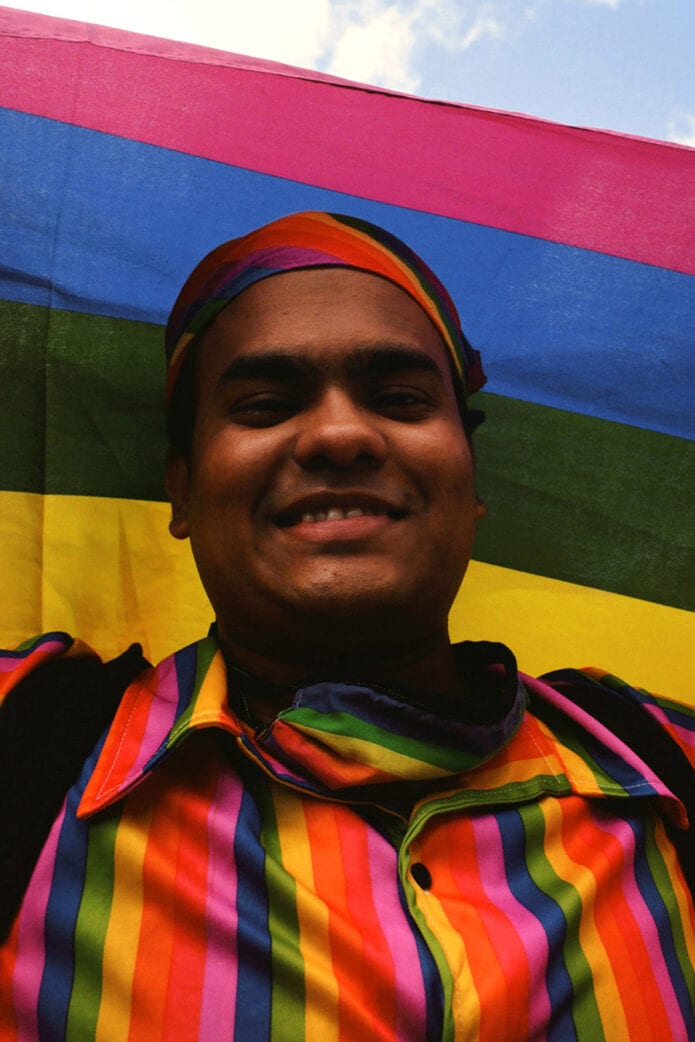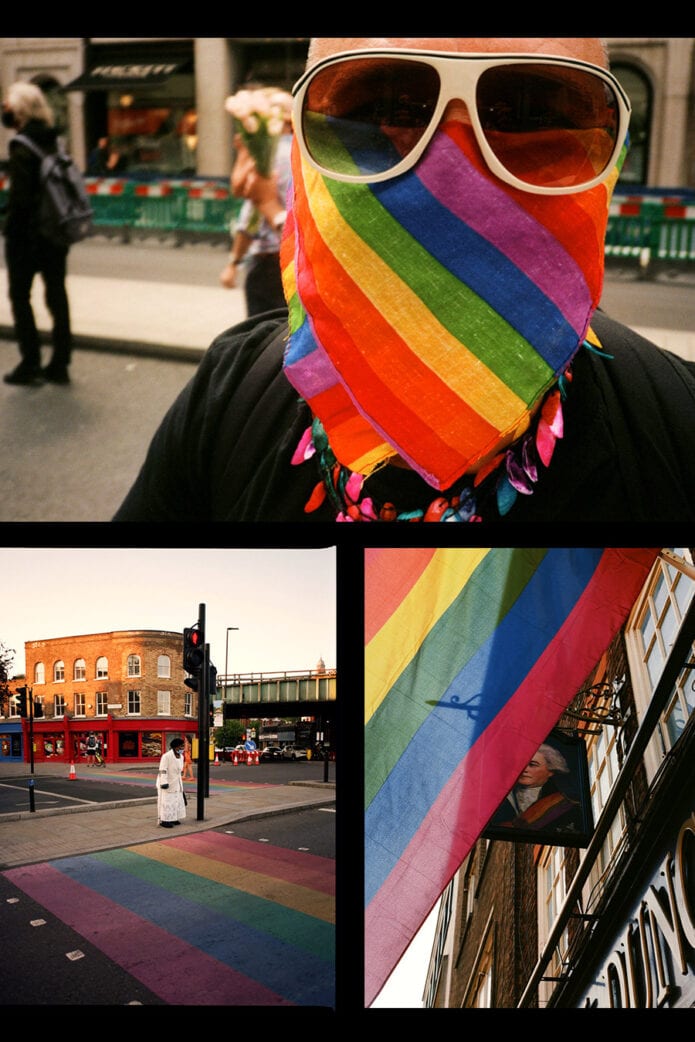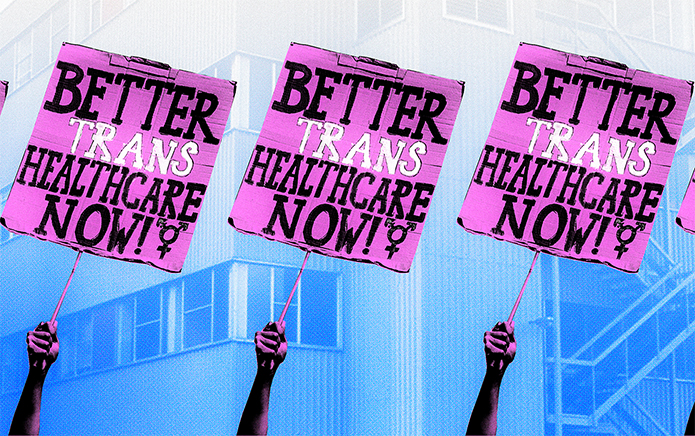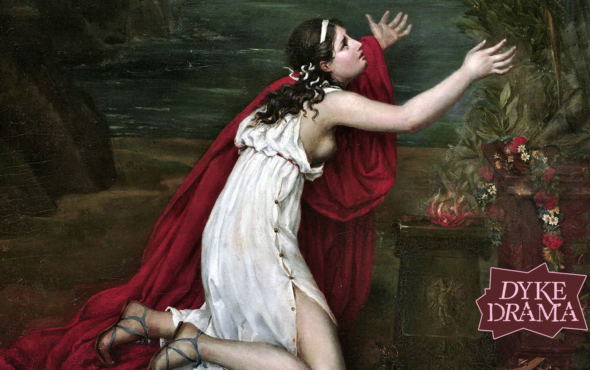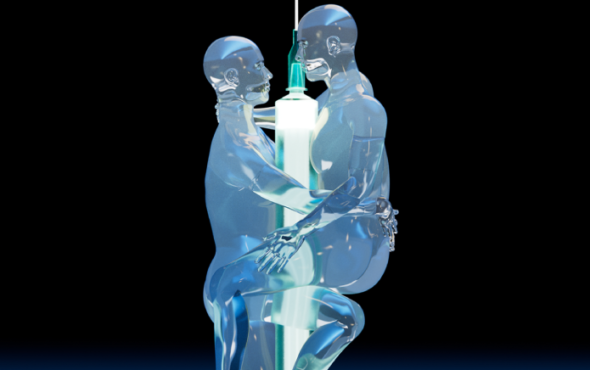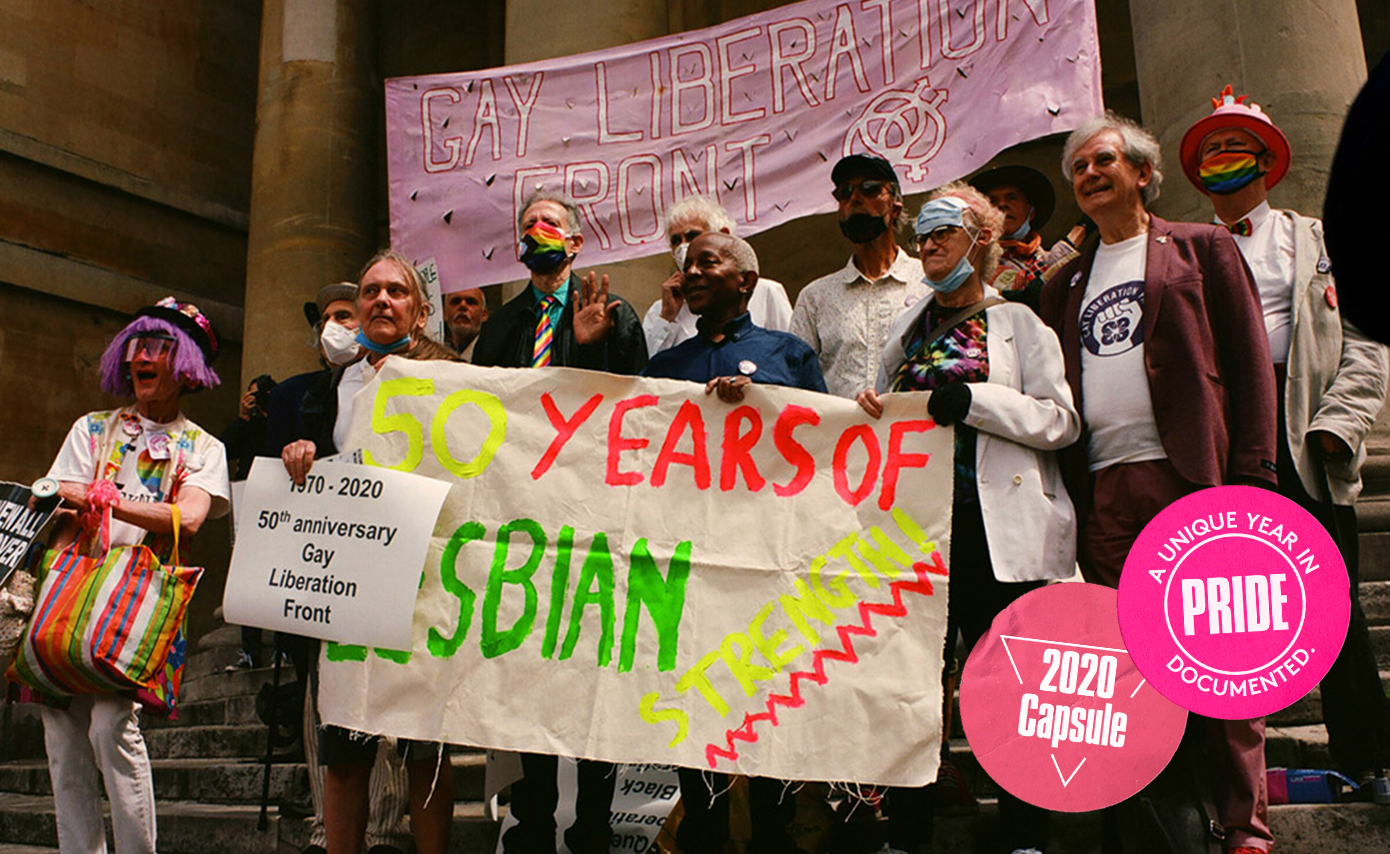
While last year marked the 50th anniversary of the Stonewall rebellion in New York City, it is 2020 that marks the 50th anniversary of the Pride movement. It was in 1970 that LGBTQ+ advocacy groups began marching in cities across the United States to honour the uprising that had taken place just a year prior. Since then, Pride has grown into a powerful, visible and international movement, continuing to fight for queer liberation and LGBTQ+ equality for people everywhere.
It was also in 1970 that the British branch of the Gay Liberation Front first formed in London, who would later march down Regent’s Street in what would be one of the earliest Pride events in the country.
“We’re here to mark the 50th anniversary of the Gay Liberation Front which ignited the modern movement for LGBTQ+ riots in Britain,” said LGBTQ+ rights activist Peter Tatchell on 27 June 2020 – what would have been the day of Pride in London if it hadn’t been cancelled due to the current COVID-19 global pandemic. “And we’re also here to reclaim Pride. Pride can be a celebration, but it also must be a march for LGBTQ+ human rights in Britain and around the world. And today, we especially want to extend our solidarity to Black Lives Matter and Black LGBTQ+ people all over the world. We stand with you.”
Later that same day a march for Black Trans Lives Matter was planned from Hyde Park to Downing Street, as part of the Black Lives Matter resurgence following the death of an innocent Black man, George Floyd, at the hands of a white policeman in Minneapolis.
Gay Liberation Front veterans gathered on the steps of All Souls Langham Place in central London to walk the original route of their Pride march decades earlier. Wearing face masks and practising social distancing, they are a reminder that the fight for LGBTQ+ liberation is far from over. But they also serve to remind a new generation of queer people the importance of knowing the history of what has come before, and the work that has been done to win the rights we have today.
“There is a debt that is owed by the Gay Liberation Front to the Black movement from the Black Panthers,” said GLF veteran Ted Brown. “Many people don’t know this, but in 1970 Huey P. Newton, the commander of the Black Panthers, invited women’s groups and various gay activists to the Revolutionary People’s Convention in Philadelphia. Two of the students from the London School of Economics who were there were Aubrey Walters and Bob Mellors, and they took his message back to London and started the Gay Liberation Front on the 13 October at the LSE. We’ve been fighting for LGBTQ+ people, gay liberation and trans rights ever since.”
The below photo essay shows a snapshot of the Gay Liberation Front 50th Anniversary Veterans March in London on 27 June 2020, amidst a lockdown in the capital. They had a copy of their original GLF manifesto in hand, held banners calling for equality, and continued to be a visible force in the ongoing battle for queer liberation.
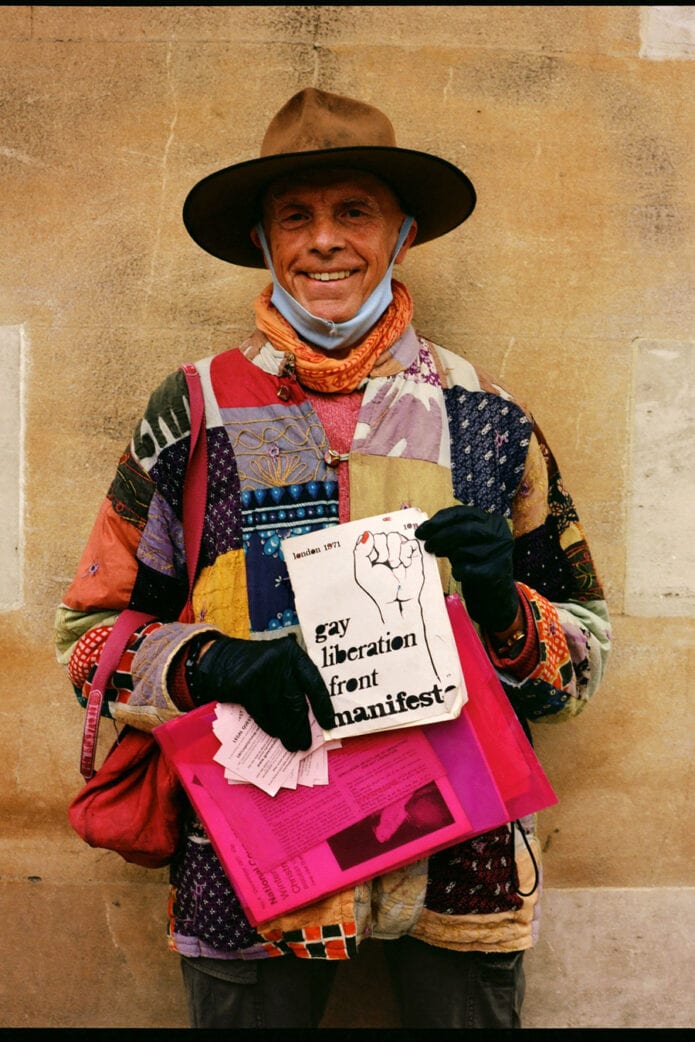
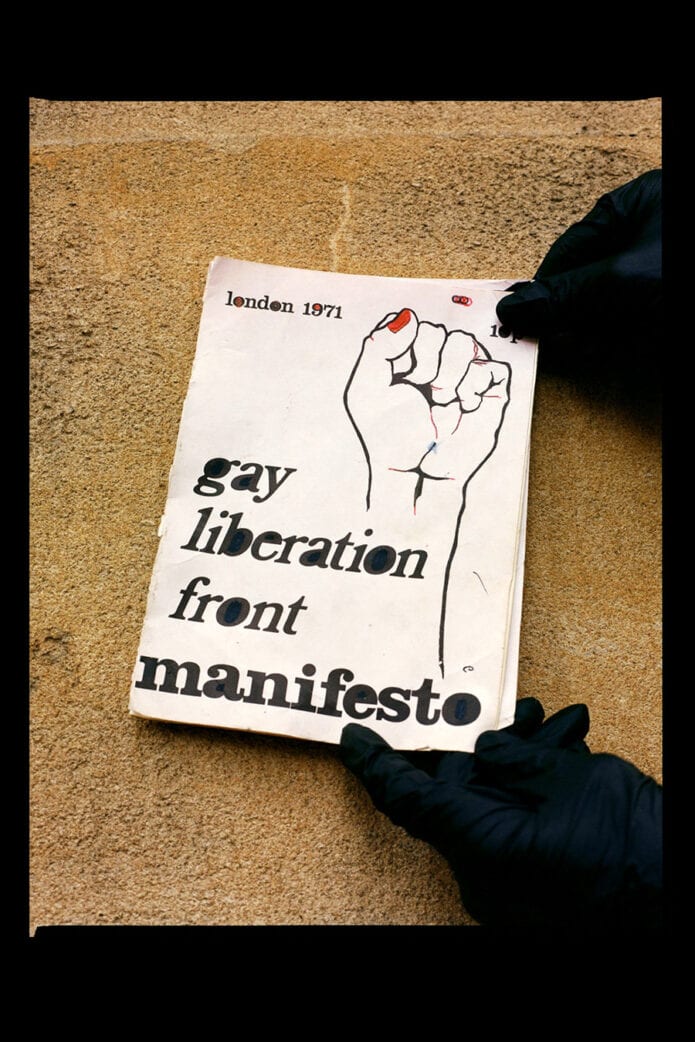
There is a debt that is owed by the Gay Liberation Front to the Black movement from the Black Panthers.
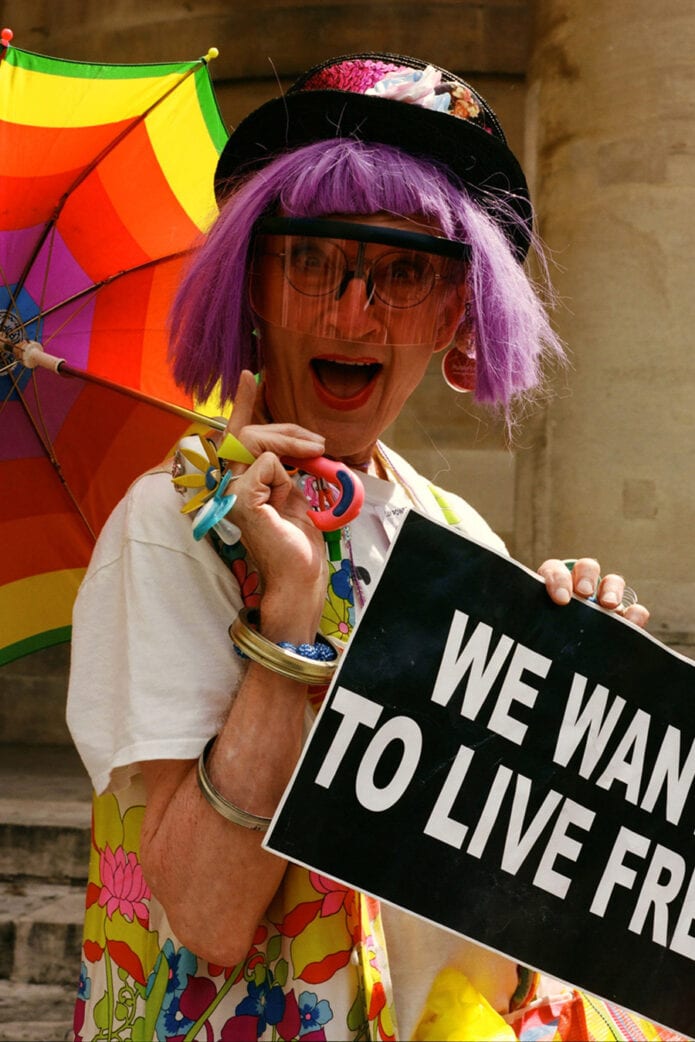
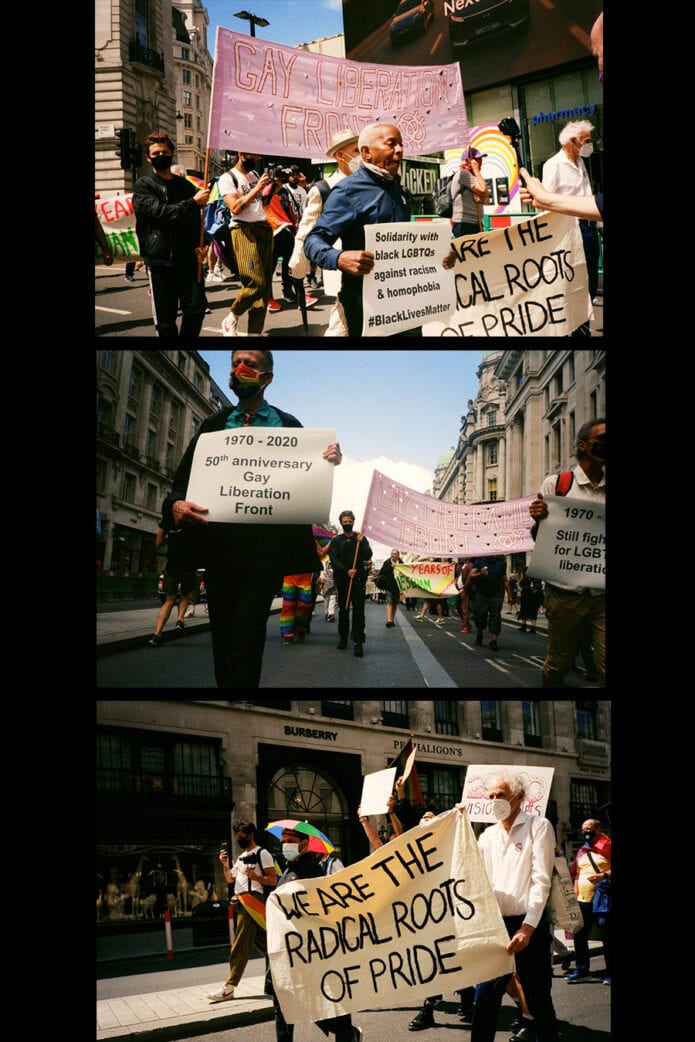
Pride can be a celebration, but it also must be a march for LGBTQ+ human rights in Britain and around the world.
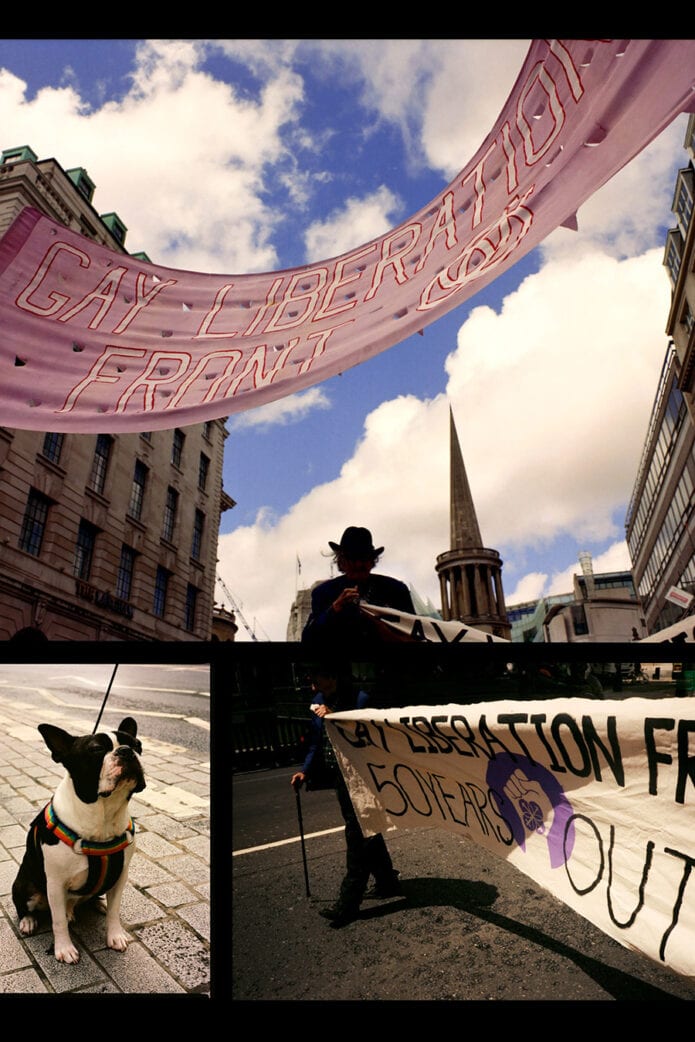
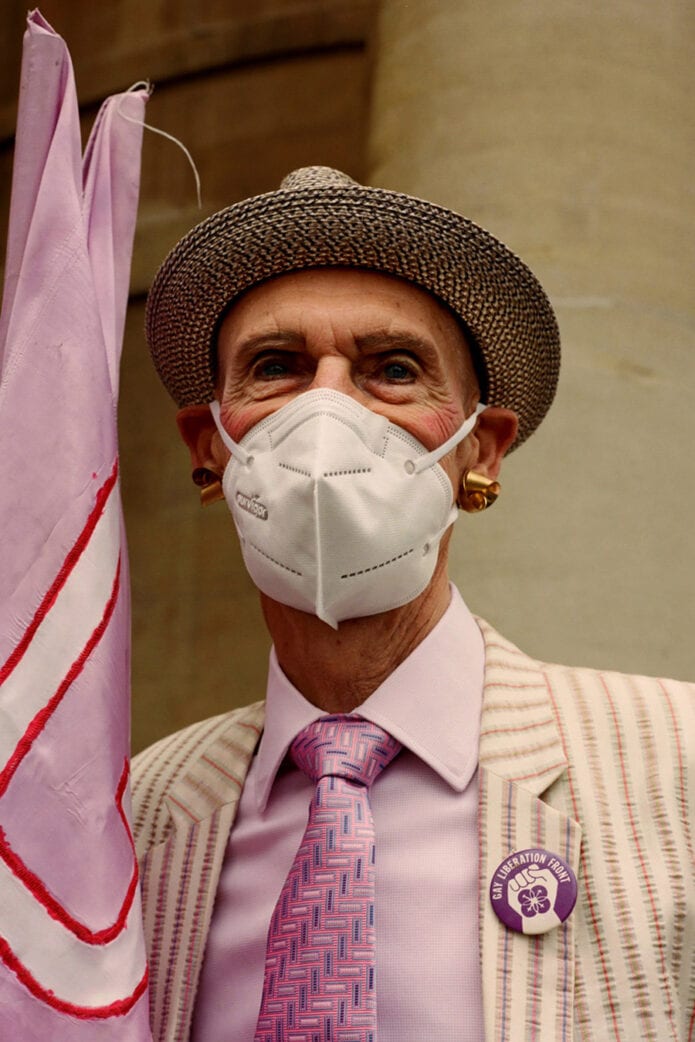
Today, we especially want to extend our solidarity to Black Lives Matter and Black LGBTQ+ people all over the world. We stand with you.
